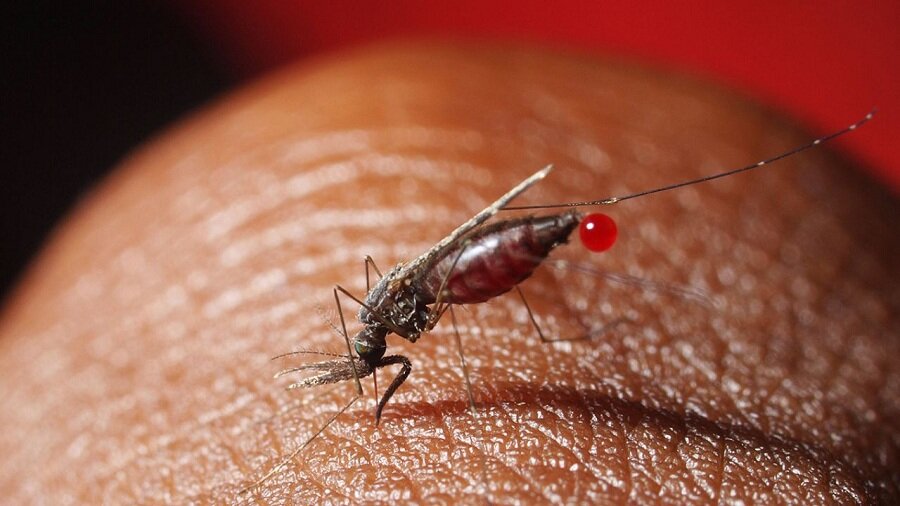Iran on final step to eliminate malaria

TEHRAN – No indigenous case of malaria has appeared in Iran for three years in a row, so the country is about to receive a certificate of malaria eradication from the World Health Organization.
Malaria is a mosquito-borne infectious disease that affects humans and other animals; the disease is most commonly spread by an infected female Anopheles mosquito. The mosquito bite introduces the parasites from the mosquito's saliva into a person's blood.
It causes symptoms that typically include fever, tiredness, vomiting, and headaches. In severe cases, it can cause yellow skin, seizures, coma, or death. Symptoms usually begin ten to fifteen days after being bitten by an infected mosquito.
If a country passes three years with no indigenous cases, the World Health Organization will grant it a certificate of malaria eradication, Ahmad Raisi, head of the Malaria control department of the Ministry of Health, said on the occasion of World Malaria Day, celebrated annually on April 25.
If a country passes three years with no indigenous cases, the World Health Organization will grant it a certificate of malaria eradication. All infected patients in the country are Afghans, Pakistanis, or possibly Iranians who traveled to these countries, he added.
World Malaria Day 2022 will be marked under the theme “Harness innovation to reduce the malaria disease burden and save lives.” Despite steady advances in lowering the global burden of malaria between 2000 and 2015, progress has slowed or stalled in recent years, particularly in high burden countries in sub-Saharan Africa.
In 2020, there were an estimated 241 million new cases of malaria and 627 000 malaria-related deaths in 85 countries. More than two-thirds of deaths were among children under the age of 5 living in the WHO African Region.
In the [Iranian calendar] month of Farvardin (March 21- April 21), unfortunately, the incidence of malaria in the country has tripled on average compared to last year, which may be due to conflicts in Afghanistan or other issues that occur in neighboring countries, Raisi noted.
Last year, 1,008 cases of malaria were identified, all of which were related either to Pakistan and Afghanistan or to Iranians living in border areas or are involved in smuggling fuel to those countries.
We have requested the WHO to start the evaluation process and grant a certificate of malaria elimination so that this year the first WHO delegation is scheduled to visit the country and evaluate the health system, he further stated.
Fortunately, the main route of transmission of the disease is still through the bite of the female Anopheles mosquito, he added.
There are about six species of Anopheles mosquitoes in Iran, of which there are no more than two or three species, which are actively involved in disease transmission in the south and southeast, and the rest are in the north of the Zagros, from which there is no malaria transmission, Raisi said.
Although the most common route of transmission of malaria is mosquito bites, in rare cases there is a possibility of transmission through the use of shared syringes among injecting drug users, he noted.
According to WHO 2017 malaria report, the incidence rate of malaria in Iran has decreased significantly from 12,000 people in 2000 to 57 in 2017.
Between 2000 and 2014, the number of malaria-related deaths fell by 40 percent worldwide, from an estimated 743,000 to 446,000.
There are 20 countries in the world that are moving towards the elimination of malaria; in the Eastern Mediterranean region, Iran is at the forefront.
WHO African Region carries high share of global malaria burden
According to the latest World malaria report, released in December 2019, there were 228 million cases of malaria in 2018 compared to 231 million cases in 2017. The estimated number of malaria deaths stood at 405,000 in 2018, compared with 416,000 deaths in 2017.
The WHO African Region continues to carry a disproportionately high share of the global malaria burden. In 2018, the region was home to 93% of malaria cases and 94% of malaria deaths.
In 2018, 6 countries accounted for more than half of all malaria cases worldwide: Nigeria (25%), the Democratic Republic of the Congo (12%), Uganda (5%), and Côte d’Ivoire, Mozambique, and Niger (4% each).
Children under 5 years of age are the most vulnerable group affected by malaria; in 2018, they accounted for 67% (272,000) of all malaria deaths worldwide.
FB/MG
Leave a Comment